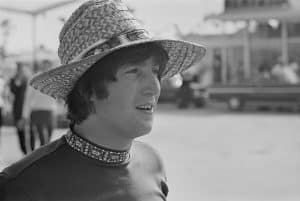The Songwriting Formula Of Aerosmith

http://www.rockbandaide.com/23113/rock-band-vr-dlc-for-412-aerosmith/aerosmith/
Aerosmith, a renowned rock band from Boston, is recognized for reshaping hard rock into a more universally appealing sound. While comparisons to the Rolling Stones are inevitable, the band, led by the charismatic Steve Tyler, has crafted its own unique identity through spectacular music.
Formed in 1971, the original lineup consisted of Joe Perry, Tom Hamilton, Joey Kramer, Ray Tabano, and Steve Tyler, who transitioned from being a drummer to an undisputed vocalist. Despite facing career challenges in the late ’70s, including personal struggles and member departures, Aerosmith managed a remarkable comeback. Initially more popular in the United States than in Europe, they reformed, regained their footing, and evolved into one of the world’s most successful and enduring rock groups.
Their commercial success has been built on a mix of melodic songs, ranging from impressive to questionable. Maintaining their essence, they navigate two distinct audience preferences, tailoring their concert repertoire based on location and event. In the United States, the emphasis is on older, more rock-oriented tracks, while in Europe, newer and melodic songs take center stage.
Aerosmith’s guitarist, Perry, revealed the band’s songwriting process in an interview. He and Tyler would collaborate, with Tyler playing drums and Perry on guitar. Tyler’s percussive singing style influenced the lyrics, and their creative sessions resulted in the formation of songs like “S.O.S.”
Aerosmith’s Three-Act Songwriting
The band’s songwriting journey can be divided into three significant stages. The first, characterized by hard rock, spanned the ’70s until the classical lineup dissolved. The second stage, from “Rock in a Hard Place” to “Get a Grip,” marked a commercial rebirth and a gradual shift towards making their music more accessible without compromising their identity. This phase showcased a balance between catchy songs and powerful guitars, epitomized by the album PUMP in 1989. However, signs of exhaustion appeared in Get a Grip (1993).
The third stage witnessed a new evolution with Nine Lives in 1997, leaning towards Adult Oriented Rock (AOR). The ballad “I Don’t Want to Miss a Thing” in 1998 catapulted them to chart-topping success but led to a shift in their sound and a disconnect with their veteran audience. Subsequent attempts to replicate this success resulted in more standardized and irregular records.
Reflecting on Aerosmith’s history in the early ’90s, when they were considered a band without a single bad record, highlights the fluctuations and transformations in their songwriting journey.


















